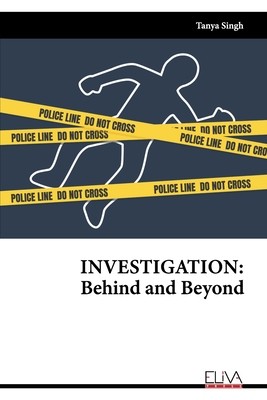
- We will send in 10–14 business days.
- Author: Tanya Singh
- Publisher: Eliva Press
- ISBN-10: 1636482465
- ISBN-13: 9781636482460
- Format: 15.2 x 22.9 x 0.2 cm, minkšti viršeliai
- Language: English
- SAVE -10% with code: EXTRA
Reviews
Description
An investigation is a major aspect of criminal law where the conviction of an accused cannot take place unless the case is investigated properly by the investigating bodies. The duties to investigate a criminal matter has been laid down in the Code of Criminal Procedure or Cr.P.C. The duties imposed by the Cr.P.C. on the police, while necessary, are not in tune with the realities of crime investigation in India. They impose upon an overworked, understaffed, poorly trained, poorly paid force, a host of duties which, if followed to the letter, would make investigations impossible given the resources available. Discussed with reasons and laid down suggestions for reform. . It's simple to work on instances of murder, assault, theft, and other crimes, but it's more difficult to work on matters involving company law. A corporation and its owner are independent legal entities, according to The Companies Act, and they are separated by the corporate veil. As a result, in the event of any wrongdoings, such as fraud or theft, the firm will be held accountable, with the owner playing no part.However, if the owner is suspected of wrongdoing in the firm, this is not the case. In such a circumstance, the court may opt to lift the corporate veil in order to determine who is accountable for the wrongdoings. The court can raise the corporate veil in a variety of situations, which can be divided into two categories: judicial interpretation and statutory provision.
EXTRA 10 % discount with code: EXTRA
The promotion ends in 21d.03:45:16
The discount code is valid when purchasing from 10 €. Discounts do not stack.
- Author: Tanya Singh
- Publisher: Eliva Press
- ISBN-10: 1636482465
- ISBN-13: 9781636482460
- Format: 15.2 x 22.9 x 0.2 cm, minkšti viršeliai
- Language: English English
An investigation is a major aspect of criminal law where the conviction of an accused cannot take place unless the case is investigated properly by the investigating bodies. The duties to investigate a criminal matter has been laid down in the Code of Criminal Procedure or Cr.P.C. The duties imposed by the Cr.P.C. on the police, while necessary, are not in tune with the realities of crime investigation in India. They impose upon an overworked, understaffed, poorly trained, poorly paid force, a host of duties which, if followed to the letter, would make investigations impossible given the resources available. Discussed with reasons and laid down suggestions for reform. . It's simple to work on instances of murder, assault, theft, and other crimes, but it's more difficult to work on matters involving company law. A corporation and its owner are independent legal entities, according to The Companies Act, and they are separated by the corporate veil. As a result, in the event of any wrongdoings, such as fraud or theft, the firm will be held accountable, with the owner playing no part.However, if the owner is suspected of wrongdoing in the firm, this is not the case. In such a circumstance, the court may opt to lift the corporate veil in order to determine who is accountable for the wrongdoings. The court can raise the corporate veil in a variety of situations, which can be divided into two categories: judicial interpretation and statutory provision.


Reviews